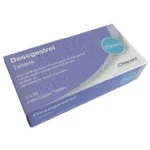The floor of your kitchen, apart from being functional and robust, is a significant design statement too. The flooring you choose is influential for the other design elements, and with the hues, materials variety, and surfaces that you will get at present, your options are about unending. You need to consider several factors into picking a kitchen floor: How much you will be cooking daily? Is your floor plan an open one? What about durability?
Keeping all these questions in mind, here are a few flooring types that can be ideal for your kitchen:
Hardwood Flooring is perfect when:

- You don’t need your kitchen to look outdated after some time.
- You have an open floor plan.
- You look for solidness.
Hardwood flooring, with its unrivalled warmth and visual intrigue, is an incredible flooring installation decision if you are looking to make a look that never truly leaves style, giving you a decent quantifiable profit if you ever sell your home. Likewise, if you have an open floor plan, hardwood functions admirably in both kitchens and living territories. It makes a warm and compact look. Hardwood is moreover is exceptionally strong. It can withstand many years of utilization. It needs low-maintenance as well. The hardwood flooring company material is also dampness safe if you pick a prefinished type.
Vinyl Flooring is perfect when:

- Lots of cooking is involved.
- You need the most straightforward to-look after floor.
- Vinyl breaks less.
- Your budget is limited.
Sheet vinyl has a place in the flooring items group called versatile flooring, which is the gentlest floor alternative. If you are cooking a lot, this comfort makes it more straightforward on your feet while reducing muscle weariness. Furthermore, sheet vinyl ground surface is very easy for cleaning; it’s stain and waterproof. However, contingent upon the size and design of your kitchen, you may have creases. The standard width for a vinyl floor is twelve feet. If your kitchen is more extensive than that, you’ll undoubtedly have wrinkles, which can lead to dampness to the subfloor and sticking dirt if they aren’t firmly fortified.
On the upside, sheet vinyl requires no continuous maintenance past clearing and mopping. If the excellent quality of vinyl floors interests to you most, you may choose padded vinyl flooring, which is supported with a layer of foam (standard sheet vinyl uses felt backing). Sounds great, yet that extra comfort makes it challenging to make creases that stay firmly reinforced after some time. You may wind up with wrinkles that fall to pieces, letting in dampness and catching soil.
Sheet vinyl comes in numerous hues and patterns. Thicker vinyl can include a finished surface, and a few kinds of work admirably of impersonating the presence of earthenware tile and genuine stone. Polished vinyl is the right decision since it offers friction. Vinyl can be perilously tricky when wet.
Vinyl flooring likewise has a wear layer that helps oppose scratches and scrape marks. However, it does, in the end, wear off. The best brands offer certifications on the wear layer of ten to fifteen years, and excellent quality vinyl should linger for about twenty years if not more.
Try not to mistake vinyl for linoleum. While linoleum is the same kind of item, it isn’t as robust, nor as delicate. Its advantage is its eco-cordiality.
Porcelain Tile is perfect when:

- You need the hardest floors.
- You like the appearance of the stone.
- You are looking for low-maintenance.
Porcelain floor tile, an adaptation of regular ceramic tile, is the strength champ. It’s burned at high temperatures that produce a tough, tough, stain-safe flooring that is impenetrable to dampness. It’s so extreme it very well may be utilized outside in practically any atmosphere. Like regular ceramic tile, porcelain tile comes either unglazed or coated. The unglazed adaptations assume the shade of their dirt blend, so they usually have earth-like tones.
Shining tiles have a glass-like covering that can be made in basically any shading and can impersonate the look and surface of the genuine stone at a much lower cost than stone. The best flooring contractor will always suggest you pick porcelain tiles affirmed as resistant against slipping by the Americans with Disabilities Act — the specification ought to be unmistakable on item writing or packing materials.
Conclusion:
These types of flooring will not only be long-lasting but will also change the appearance of your kitchen. Hence, consult with your flooring contractor, sit with him, and analyze the look and feel of your kitchen before you decide on selecting the best flooring type applicable for your house.






